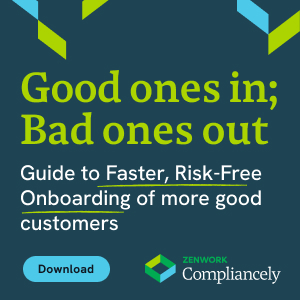Who Needs The Real-Time TIN Matching Check?

When we think of independent contractors, the gig economy is the first major industry that comes to mind. This is because the gig economy predominantly dominates the market with its no-strings-attached talent pool.
It is established that the gig economy supplies at least 40% of independent talent to the private sector with the U.S workforce being involved in some kind of gig work or a “side hustle”.
Self-employed professionals in the gig economy are commonly known as independent contractors or vendors who provide niche services to businesses.
The gig economy, being highly unregulated due to its recent, sudden growth and a variety of widespread malpractices to restrict the disclosure of income, can be a complicated marketplace. It’s not just about self-employed vendors. You could also be dealing with independent contracting entities in the gig economy and verifying their identities is just as crucial if not more.
Challenges in Gig Economy
Although the talent is easy to find at reasonable prices, not all talent is ready to disclose their tax obligations. Now, what does this mean? Many self-employed individuals choose gig work due to its quick channels that bring easy and quick cash. Disclosing this income would mean paying the taxes for the income earned.
Another challenge for independent contractors is that they could still be employed full-time by an employer but choose to work on gigs for quick income. Not all employers agree with this approach and could let go of the talent. Providing a valid TIN and legal business name to the hiring entity would mean complying to bear the tax burden for the earned income – and many of the gig workers don’t want to risk losing more money to taxes.
So, it is possible for businesses looking for contractors within the gig economy to come across a few gig workers who may not be comfortable with disclosing their tax reporting information. And if you’re someone who is planning on hiring independent contractors, this could be a very plausible issue for you.
Implications Of Not Reporting IRS TINs
The IRS states that businesses that hire independent contractors and pay them at least $600 or more in a year in exchange for their services must report all such non-employee compensations in the 1099-NEC form. This voluntary compliance protocol requires businesses to report not just the payments made but the identities of the recipients – the independent contractors and their TINs (taxpayer-identification numbers).
Now, if you have made the payment and reported the payment in the 1099 form but did not disclose the TIN in the form, the IRS will most likely reject the return altogether and even issue a CP2100 notice (B-notice). If you disregard this notice, be prepared for IRS penalty assessments of up to $270 for each incorrect TIN reported.
Identifying Gig Workers – A Priority For Employers
It’s not just identification per se that is essential but the critical factor of verification that helps businesses stay in the green. While some businesses choose to verify all the vendor information at the end of the year, it comes with its strenuous consequences.
Obtaining, validating, and reporting the TIN and legal name information with accuracy is very important to the IRS 1099 reporting regime because inaccurate reports could bounce back with notices and penalties.
And postponing the validating process to the end of the year will only make things difficult given the timelines for reporting and submitting the IRS forms before the deadlines. And let’s not forget the legal implications of grey-hat practices.
TIN Matching/TIN Lookup: What’s In It For You?
Your accounting teams are burdened enough during the end of the tax year, they do not need the additional burden of verifying, rectifying, and following up with the independent contractors at the last minute.
This is why regulatory bodies, such as the IRS, advise businesses to obtain all the required tax and legal information during the vendor onboarding process. And given the significance of the Know Your Customer/Client procedure and the Customer Identification Process, this could work in your favour.
Validating the identities of your incoming vendors will help you:
- Verify the real identities of your vendors
- Accelerate reporting accuracy
- Onboard profiles faster
- Assess and prevent the risk
- Onboard verified vendors who are legally qualified to conduct business
- Prevent onboarding profiles with a history of engaging in non-compliant conduct
And you can extend your KYC protocols with due diligence if you’re unsure about the legitimacy of your vendors. This gives you a chance to disprove commercial associations with profiles that are designated by the federal authorities as “off-limits”.
How Compliancely’s Real-Time TIN Match Helps
Verifying your vendor TINs with Compliancely’s real-time TIN match program will enable you to verify your vendor profiles in bulk. You can verify as many as 100,000+ TINs in a minute with a turnaround of 30 seconds.
Compliancely is authorized by the IRS and brings you the latest, real-time information from the direct source – the IRS. No third parties are involved, giving you real-time, accurate TIN match results. Your vendor profiles are automatically re-screened if the IRS updates its source data lists, giving you the competitive accuracy edge.

